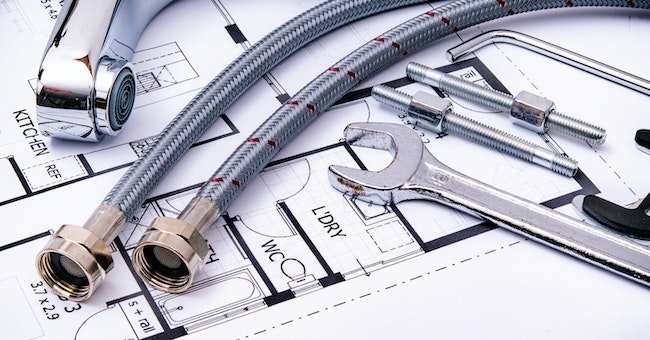Best Government Funded Plumbing Courses

Introduction
Are you interested in pursuing a career in plumbing? Becoming a certified plumber can open up numerous opportunities for you in the construction and maintenance industry. Plumbing offers a rewarding career choice due to its vital role in infrastructure and the numerous advantages it offers. With job stability regardless of economic fluctuations, competitive salaries that increase with experience, a diverse range of tasks, and opportunities for career progression and specialization, plumbing provides a dynamic and engaging work environment.
While there are various paths to becoming a plumber, one option worth considering is enrolling in government-funded plumbing courses. These courses offer financial support and high-quality training, making them an attractive choice for aspiring plumbers. In this article, we will explore the process of becoming a certified plumber and delve into the details of government-funded plumbing courses. So, let's dive in!
How to Become a Certified Plumber?
To embark on a successful career in plumbing, there are several key steps you need to follow. Here's a detailed explanation of each step:
Obtain a high school diploma or equivalent: A basic educational qualification is typically required to pursue a career in plumbing. A high school diploma or GED (General Educational Development) equivalent is often the minimum requirement. A solid educational foundation in subjects like mathematics, science, and technical drawing can be beneficial in understanding the principles and calculations involved in plumbing work.
Complete a plumbing apprenticeship: Apprenticeships play a crucial role in the journey to becoming a certified plumber. These programs provide a combination of classroom instruction and practical, hands-on training under the guidance of experienced plumbers. Apprenticeships usually last around four to five years, during which you'll learn essential skills, gain practical experience, and gradually take on more complex plumbing tasks.
Acquire a plumbing license: After completing your apprenticeship, you'll need to obtain a plumbing license to work independently as a plumber. The requirements for licensure vary depending on the jurisdiction in which you plan to work. Licensing boards or regulatory bodies set specific criteria that plumbers must meet to ensure public safety and maintain industry standards.
Continuing education and specialization: Plumbing is also witnessing new technologies and techniques constantly emerging. To stay updated with the latest industry trends and enhance your expertise, consider pursuing continuing education courses. These courses can provide you with additional knowledge and skills in specialized areas such as green plumbing, advanced pipefitting techniques, or energy-efficient systems.
Additionally, consider specializing in specific areas of plumbing that align with your interests and career goals. Specializing can set you apart from others in the field and provide opportunities for advancement. Whether it's focusing on commercial plumbing, hydronics, or sustainable plumbing practices, specialization allows you to become an expert in your chosen area and cater to specific client needs.
What Type of Plumber Makes the Most Money?
Types of Plumbing Jobs
Residential Plumbers: These plumbers specialize in working on plumbing systems in private homes and residential buildings. They handle tasks such as installing and repairing pipes, fixtures, and appliances.
Commercial Plumbers: Commercial plumbers focus on plumbing systems in commercial establishments such as office buildings, hotels, and retail spaces. They often deal with more complex systems and larger-scale projects.
Industrial Plumbers: Industrial plumbers work in industrial settings like factories, manufacturing plants, and power stations. They are responsible for maintaining and repairing plumbing systems that support industrial processes.
Service and Repair Plumbers: Service and repair plumbers specialize in diagnosing and fixing plumbing issues in both residential and commercial settings. They may work for plumbing companies or operate as independent contractors.
Pipefitters: Pipefitters work with high-pressure systems, such as those found in industrial facilities and power plants. They install and maintain pipes that carry gases or liquids.
While the earning potential can vary based on factors such as location and experience, commercial and industrial plumbers often have the opportunity to earn higher salaries due to the complexity and scale of their projects.
How Much Does a Plumber Earn Per Hour in the US?
Plumbing can be a lucrative career choice, and the earning potential for plumbers in the United States is quite promising. The average hourly salary for a plumber in the United States is approximately $26.10 as of June 2023.
The earnings of plumbers can also vary by state. For example, the hourly wages for plumbers in Alabama range from $28,570 to $64,290, while in Alaska, it ranges from $54,810 to $103,930. Each state has its own salary range based on factors like local demand and cost of living.
It is important to note that the earnings can vary based on factors such as experience, specialization, and geographical location. Plumbers in metropolitan areas or regions with high demand for skilled tradespeople often command higher wages. Additionally, those with advanced certifications and specialized skills may have more opportunities for higher-paying jobs.
As you gain experience and establish yourself in the industry, there is potential for increased earnings and the possibility of starting your own plumbing business, which can further boost your income.
How to Take Government Funded Plumbing Courses
What Are Government Funded Courses for Plumbing?
Government-funded courses for plumbing are educational programs that are partially or fully funded by government agencies, such as vocational training centers, community colleges, or apprenticeship programs. These courses aim to equip aspiring plumbers with the necessary skills and knowledge required to enter the industry.
The funding for these courses can come from various sources, including federal or state governments, trade associations, or workforce development initiatives. The availability and scope of government-funded plumbing courses may vary depending on your location, so it's essential to research the options available in your area.
Government-funded plumbing courses offer numerous benefits that make them an attractive option for individuals aspiring to become certified plumbers:
Financial Assistance: One of the primary advantages of government-funded plumbing courses is the financial support they offer. These courses are often subsidized or fully funded by the government, making them more accessible to individuals who may not have the means to pursue expensive training programs. By alleviating the financial burden, government funding enables aspiring plumbers to focus on their education and skill development.
Hands-on Experience: Government-funded plumbing courses typically emphasize practical training. They provide ample opportunities for students to gain hands-on experience under the guidance of experienced plumbers. This practical component allows aspiring plumbers to develop essential skills and apply their knowledge in real-world scenarios. By working on actual plumbing projects, students can enhance their problem-solving abilities and build confidence in their abilities.
Industry-Relevant Training: Government-funded plumbing courses are designed to align with industry standards and requirements. They provide comprehensive training on essential plumbing techniques, safety protocols, building codes, and regulations. By receiving industry-relevant education, students are well-prepared to enter the workforce and meet the demands of the plumbing industry.
Networking Opportunities: During government-funded plumbing courses, students have the chance to connect and network with professionals already established in the industry. Guest speakers, industry events, and apprenticeship placements create networking opportunities that can lead to valuable contacts and potential employment prospects. Building a network within the plumbing industry can open doors to mentorship, job opportunities, and career advancement.
Recognized Credentials: Completing a government-funded plumbing course often leads to the attainment of recognized credentials and certifications. These credentials validate the skills and knowledge acquired during the training program, increasing employability and credibility in the industry. Potential employers and clients value these certifications as they provide assurance of the plumber's competence and adherence to industry standards.
Support Services: Many government-funded plumbing courses offer additional support services to students. This may include career counseling, job placement assistance, and ongoing mentorship. These services can be invaluable in helping students transition into the workforce, find employment opportunities, and navigate the early stages of their plumbing careers.
Government-funded plumbing courses not only benefit individuals but also contribute to the overall growth and development of the plumbing profession. By investing in the education and training of future plumbers, governments support the maintenance and improvement of vital infrastructure systems while ensuring a skilled workforce for the future.
Steps to Apply for Government Funded Plumbing Courses
If you're interested in pursuing government-funded plumbing courses, here are the general steps to follow:
Research available programs: Start by researching the government-funded plumbing courses offered in your region. Look for reputable institutions or organizations that offer comprehensive training programs with financial support.
Check eligibility requirements: Each course or program may have specific eligibility criteria. Ensure that you meet the necessary requirements, such as age restrictions, educational qualifications, and any other prerequisites.
Gather necessary documents: Prepare the required documents, such as identification proofs, educational transcripts, and any other paperwork specified by the course provider.
Complete the application: Fill out the application form accurately and provide all the requested information. Pay attention to deadlines and submit your application within the specified timeframe.
Attend interviews or assessments: Some courses may require interviews or assessments to evaluate your suitability for the program. Be prepared to showcase your passion for plumbing and your commitment to learning.
Follow the enrollment process: If your application is successful, follow the enrollment process outlined by the course provider. This may involve submitting additional documentation, paying fees (if applicable), or attending orientation sessions.
By following these steps, you can increase your chances of securing a spot on a government-funded plumbing course and embark on a fulfilling journey toward becoming a certified plumber. It is still noteworthy that the exact steps may vary depending on your local regulations and actual practice.
Factors to Consider When Choosing Government Funded Plumbing Courses
When choosing government-funded plumbing courses, it's essential to consider various factors to ensure you make an informed decision. Here are some key factors to keep in mind:
Accreditation and quality: Verify if the course or institution is accredited and recognized by relevant plumbing associations or educational bodies. Accreditation ensures that the program meets certain quality standards and adheres to industry best practices.
Curriculum and training methods: Review the course curriculum to understand the topics covered and the training methods employed. Look for programs that provide a comprehensive and practical learning experience, including hands-on training and opportunities for real-world application.
Faculty and industry connections: Research the qualifications and expertise of the faculty members involved in delivering the course. Experienced instructors with industry connections can provide valuable insights and networking opportunities.
Financial support: Consider the level of financial support provided by the government-funded program. Evaluate factors such as tuition fees, availability of scholarships or grants, and any additional costs involved.
Job placement assistance: Look for courses that offer job placement assistance or apprenticeship opportunities upon completion. Such support can greatly enhance your chances of securing employment in the field after finishing the program.
Reviews and reputation: Seek feedback from current or former students of the course or institution to gauge their experiences. Online reviews and testimonials can provide insights into the reputation and effectiveness of the program.
By carefully considering these factors, you can choose the best government-funded plumbing course that aligns with your goals and sets you on the path to a successful plumbing career.
Conclusion
In a nutshell, embarking on a career in plumbing can be a wise choice for individuals seeking stability, financial success, and personal fulfillment. The path to becoming a certified plumber involves obtaining a high school diploma or equivalent, completing a plumbing apprenticeship, acquiring a plumbing license, and considering continuing education and specialization. However, one attractive option for aspiring plumbers is enrolling in government-funded plumbing courses, which provide financial support and high-quality training. These courses offer numerous benefits, including financial assistance, hands-on experience, and industry connections, making them an excellent choice for those with a passion for plumbing but limited resources.
Whether you're considering a career change or just starting your journey, exploring the possibilities of government-funded plumbing courses can be a valuable step. By investing in your education and practical training, you can gain the necessary skills and knowledge to thrive in the plumbing industry. Remember, plumbing is not only about fixing pipes; it's about ensuring the safety, convenience, and well-being of individuals and communities.
So, if you're passionate about working with your hands, problem-solving, and making a tangible difference, consider the path of a certified plumber. Embrace the opportunities that government-funded plumbing courses provide, and embark on a fulfilling career that offers job stability, personal growth, and the satisfaction of serving others. With dedication, continuous learning, and a commitment to excellence, you can become a trusted professional in the field of plumbing.





